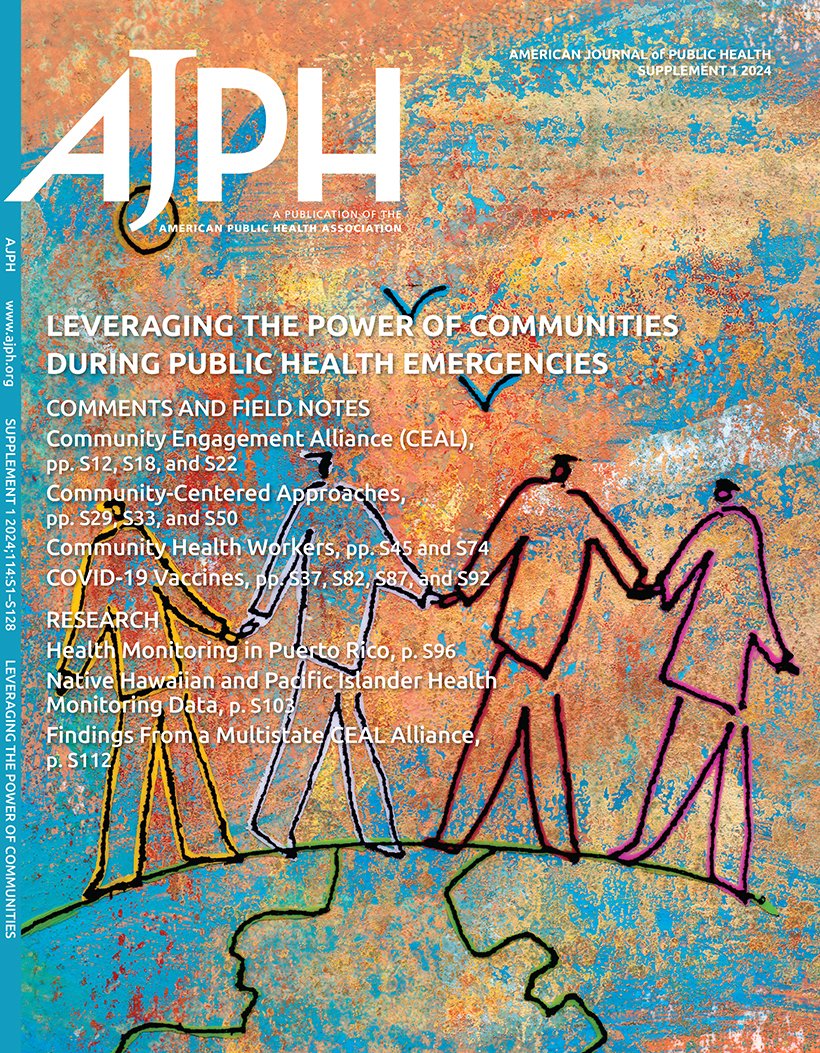发展战略和协作的社区-学术伙伴关系,以改善社区卫生,从上游移动到根源。
IF 9.6
1区 医学
Q1 PUBLIC, ENVIRONMENTAL & OCCUPATIONAL HEALTH
引用次数: 0
摘要
社区合作伙伴在筹资实践中经历了不公平和缺乏透明度。为社区合作伙伴提供资金是社区参与研究的关键组成部分,因为它影响社区信任和机会。我们比较了两个研究中心(纽约市;洛杉矶和奥兰治县,加利福尼亚州)采用不同的社区供资方法,这影响了机构与社区组织合作和支持社区组织的能力。我们描述了由国家少数民族健康和健康差异研究所资助的国家联盟的两个中心的社区参与和参与研究活动,描述了每个中心资助社区组织的过程。我们介绍了从社区组织、社区行动委员会和研究机构之间正在进行的合作努力中吸取的经验教训。我们讨论了在支持社区组织合作伙伴的努力中取得的成功和增长的机会,帮助维持其健康公平项目的资源,长期机构投资对维持这种支持的重要性,以及增加可信度和可持续结果的机构层面变革的潜力。我们提倡在机构重点和资源投资方面进行系统性的改革,以更好地响应社区需求。[J] .公共卫生,2025;115(S2):S152-S163。https://doi.org/10.2105/AJPH.2025.308092)。本文章由计算机程序翻译,如有差异,请以英文原文为准。
Developing Strategic and Collaborative Community-Academic Partnerships to Improve Community Health, From Moving Upstream to Getting at the Root.
Community partners have experienced inequity and lack of transparency in funding practices. Funding for community partners is a critical component of community-engaged research, as it influences community trust and opportunities. We compared contextual and site-specific factors at 2 centers (in New York City; Los Angeles and Orange Counties, CA) with different community-funding approaches, which influence institutional capacity to partner with and support community-based organizations. We describe community participatory and engaged research activities in two centers in a National Institute on Minority Health and Health Disparities-funded national consortium, describing each center's process for funding community-based organizations. We present lessons learned from ongoing collaborative efforts between community-based organizations, community action boards, and research institutions. We discuss successes and opportunities for growth in our efforts to support community-based organization partners, resources to help sustain their health equity programs, the importance of long-term institutional investment to sustain this type of support, and the potential for institutional-level changes that increase trustworthiness and sustainable outcomes. We advocate for systemic changes in institutional focus and resource investment to better respond to community needs. (Am J Public Health. 2025;115(S2):S152-S163. https://doi.org/10.2105/AJPH.2025.308092).
求助全文
通过发布文献求助,成功后即可免费获取论文全文。
去求助
来源期刊

American journal of public health
医学-公共卫生、环境卫生与职业卫生
CiteScore
9.50
自引率
3.90%
发文量
1109
审稿时长
2-4 weeks
期刊介绍:
The American Journal of Public Health (AJPH) is dedicated to publishing original work in research, research methods, and program evaluation within the field of public health. The journal's mission is to advance public health research, policy, practice, and education.
 求助内容:
求助内容: 应助结果提醒方式:
应助结果提醒方式:


